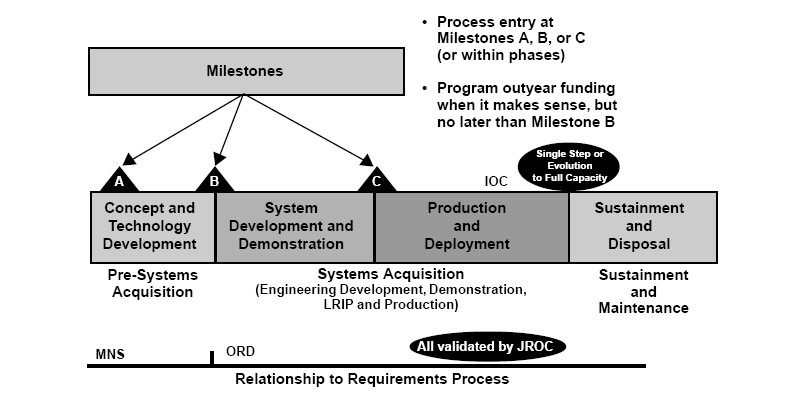|
Total Cost Of Acquisition
Total cost of acquisition (TCA) is a managerial accounting concept that includes all the costs associated with buying goods, services, or assets. Generally, it is the net price plus other costs needed to purchase the item and get it to the point of use. These other costs can include: the item's purchasing costs (closing, research, accounting, commissions, legal fees), transportation, preparation and installation costs. Paquette, Larry, (2004). The Sourcing Solution. AMAMOC, New York, 109-115 Typically they do not include training, system integration costs that might be considered operational costs. See also *Total cost *Total cost of ownership *Procurement Procurement is the method of discovering and agreeing to terms and purchasing goods, Service (economics), services, or other works from an external source, often with the use of a tendering or competitive bidding process. When a government agenc ... *{{section link, Purchase, Acquisition process References External links ... [...More Info...] [...Related Items...] OR: [Wikipedia] [Google] [Baidu] |
Management Accounting
In management accounting or managerial accounting, managers use accounting information in decision-making and to assist in the management and performance of their control functions. Definition One simple definition of management accounting is the provision of financial and non-financial decision-making information to managers. In other words, management accounting helps the directors inside an organization to make decisions. This can also be known as Cost Accounting. This is the way toward distinguishing, examining, deciphering and imparting data to supervisors to help accomplish business goals. The information gathered includes all fields of accounting that educates the administration regarding business tasks identifying with the financial expenses and decisions made by the organization. Accountants use plans to measure the overall strategy of operations within the organization. According to the Institute of Management Accountants (IMA), "Management accounting is a profession t ... [...More Info...] [...Related Items...] OR: [Wikipedia] [Google] [Baidu] |
Closing Costs
Closing costs are fees paid at the ''closing'' of a real estate transaction. This point in time called the ''closing'' is when the title to the property is conveyed (transferred) to the buyer. Closing costs are incurred by either the buyer or the seller. Examples of typical closing costs * Attorney (Lawyer) fees, paid by either or both parties, for the preparation and recording of official documents. The principals and/or lender may each be represented by their own attorney. Typically required by institutional/commercial lenders to ensure documents are prepared correctly. *Title service cost(s), paid by either party according to the contract but by default seller may pay the majority, for title search, title insurance, and possibly other title services. In some cases the attorney may do the title search or the title service and attorney fees may be combined. Required by institutional/commercial lenders and often by the real estate contract. *Recording cost, paid by either party, c ... [...More Info...] [...Related Items...] OR: [Wikipedia] [Google] [Baidu] |
Total Cost
In economics, total cost (TC) is the minimum dollar cost of producing some quantity of output. This is the total economic cost of production and is made up of variable cost, which varies according to the quantity of a good produced and includes inputs such as labor and raw materials, plus fixed cost, which is independent of the quantity of a good produced and includes inputs that cannot be varied in the short term such as buildings and machinery, including possibly sunk costs. Total cost in economics includes the total opportunity cost (benefits received from the next-best alternative) of each factor of production as part of its fixed or variable costs. The additional total cost of one additional unit of production is called marginal cost. The marginal cost can also be calculated by finding the derivative of total cost or variable cost. Either of these derivatives work because the total cost includes variable cost and fixed cost, but fixed cost is a constant with a derivativ ... [...More Info...] [...Related Items...] OR: [Wikipedia] [Google] [Baidu] |
Total Cost Of Ownership
Total cost of ownership (TCO) is a financial estimate intended to help buyers and owners determine the direct and indirect costs of a product or service. It is a management accounting concept that can be used in full cost accounting or even ecological economics where it includes social costs. For manufacturing, as TCO is typically compared with doing business overseas, it goes beyond the initial manufacturing cycle time and cost to make parts. TCO includes a variety of cost of doing business items, for example, ship and re-ship, and opportunity costs, while it also considers incentives developed for an alternative approach. Incentives and other variables include tax credits, common language, expedited delivery, and customer-oriented supplier visits. Use of concept TCO, when incorporated in any financial benefit analysis, provides a cost basis for determining the total economic value of an investment. Examples include: return on investment, internal rate of return, economic value ... [...More Info...] [...Related Items...] OR: [Wikipedia] [Google] [Baidu] |
Procurement
Procurement is the method of discovering and agreeing to terms and purchasing goods, Service (economics), services, or other works from an external source, often with the use of a tendering or competitive bidding process. When a government agency buys goods or services through this practice, it is referred to as Government procurement, public procurement. Procurement as an organization, organizational process is intended to ensure that the buyer receives goods, services, or works at the best possible price when aspects such as quality, quantity, time, and location are compared. Corporations and public bodies often define processes intended to promote fair and open competition for their business while minimizing risks such as exposure to fraud and collusion. Almost all purchasing decisions include factors such as delivery and handling, marginal benefit, and fluctuations in the prices of goods. Organisations which have adopted a corporate social responsibility perspective are also ... [...More Info...] [...Related Items...] OR: [Wikipedia] [Google] [Baidu] |
